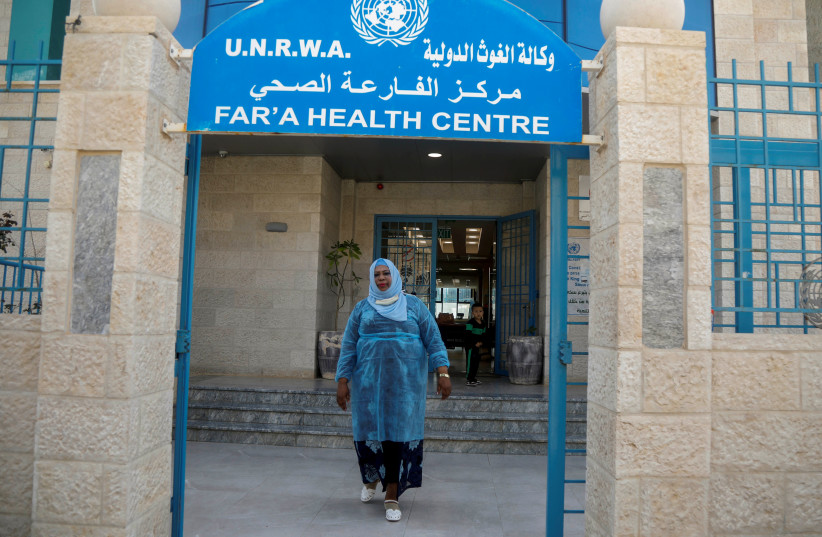The Hashemite Kingdom of Jordan and the Swedish government are convening an international ministerial conference in Brussels on Tuesday regarding UNRWA, the United Nations Relief and Works Agency.
According to its own website, “The purpose of the conference is to strengthen the mutual responsibility of UNRWA and the international community to protect the rights and enhance the human development of the Palestine refugees, by providing the Agency with the financial stability and predictability of funding it requires to fully and effectively implement its United Nations General Assembly mandate.”
The website makes a plea for member states to pledge additional funds to the organization – and the funding crisis is high on the agenda at the meeting. What UNRWA considers “political attacks,” however, are attempts to question the running of and even the need for an organization dedicated solely to the Palestinian refugees.
There has been a drop in countries funding the organization recently, in large part following the reports which show where the money is going. In 2019, UNRWA commissioner-general Pierre Krähenbühl resigned amid a scandal after an internal UNRWA report found “management issues.”
Organizations, including IMPACT-se and Palestinian Media Watch among others, have extensively researched the textbooks and education system in UNRWA-run schools and found clear support of terrorism and the cult of martyrdom. There have also been acknowledged cases of Hamas creating terror tunnels and weapons stores under UNRWA schools in Gaza, using the children as human shields.

US President Joe Biden in April reversed a decision by Donald Trump and restored $235 million in aid to the organization, but the UK last month cut its funding by half and other donor countries have also reduced support following the questions raised about its operations.
UNRWA was founded in 1949 to provide what was meant to be a temporary solution until the “Palestinian refugee problem” was sorted out. Most other refugees are cared for by the UN’s High Commissioner for Refugees and, unlike the Palestinians, their status is not passed on to future generations.
The Palestinians, on the other hand, have their own agency and have been granted perpetual refugee status. According to UNRWA, Palestinian refugees are not just people who fled from the nascent Jewish state during the 1948 War of Independence and have yet to be resettled, but they include descendants of those refugees. Someone born this week, during the UNRWA donor meeting, can be considered a refugee of a war that occurred more than seven decades ago.
There is some irony in Jordan being the sponsor of the meeting given that the majority of the Jordanian population is Palestinian and many meet the UNRWA definition of being “refugees,” despite having Jordanian citizenship.
UNRWA has not solved the “refugee problem.” On the contrary, it has created a bigger one than ever before. While some 726,000 Arabs originally fell under the agency’s auspices in 1949, the number more than 70 years later now stands at 5.7 million – almost eight times as many. In other words, it has added to the refugee problem and, at the same time, perpetuated the conflict between Israel and the Palestinians.
Instead of getting on with their lives, the Palestinians in places like Gaza, with UNRWA’s encouragement, continue to grasp a false dream of one day “returning” to Jaffa, Haifa, Safed or Jerusalem. Far from transforming refugees into self-sufficient individuals, the agency has fostered dependency and a culture of entitlement. It is this that the donor countries are now being asked to fund with even greater sums of money than before.
If, after 70-plus years, the Palestinian refugees still need more help than any other group of refugees, such as those struggling to enter Europe in the humanitarian crisis along the Polish-Belarus border, then UNRWA has clearly failed.
UNRWA doesn’t need more funds – it needs to be closed down.
